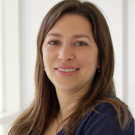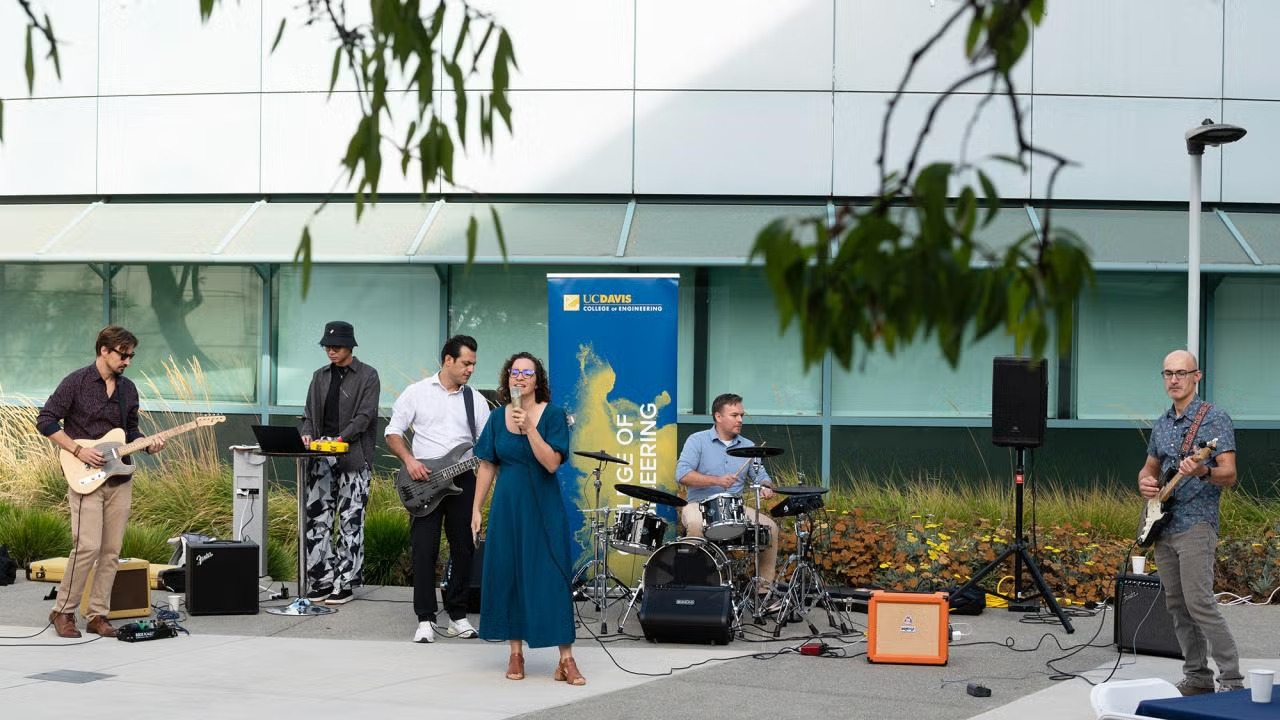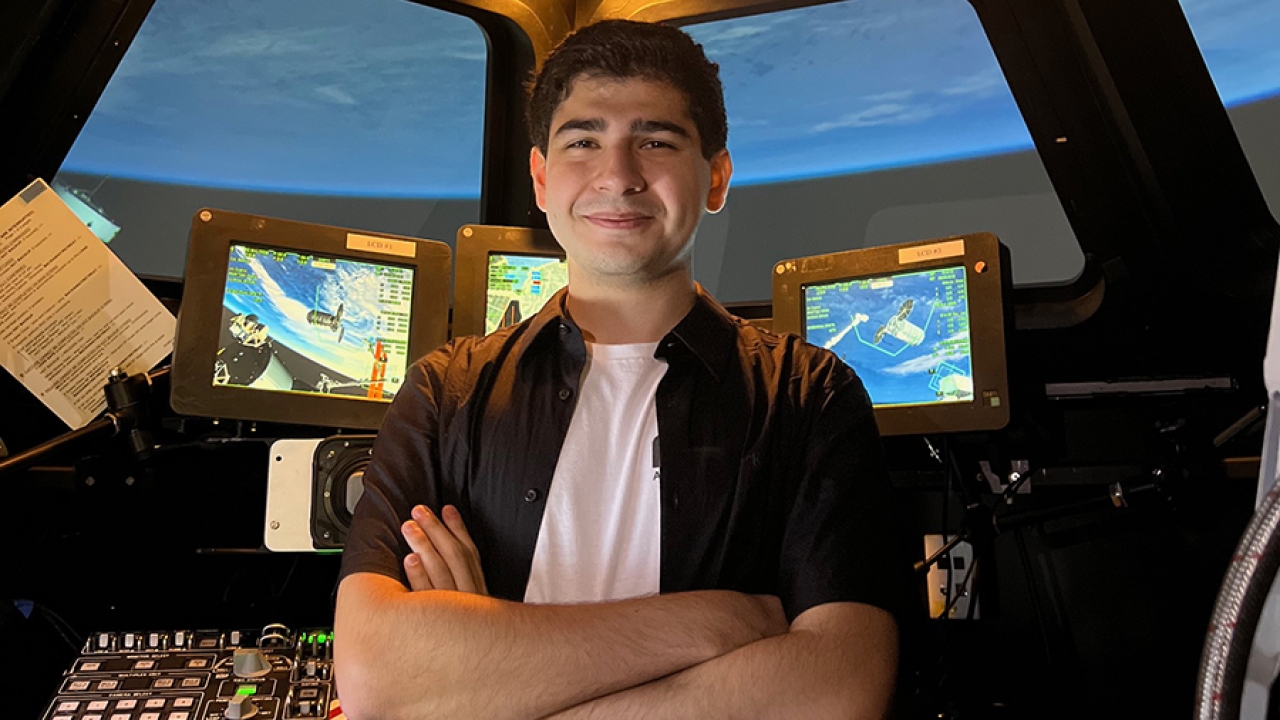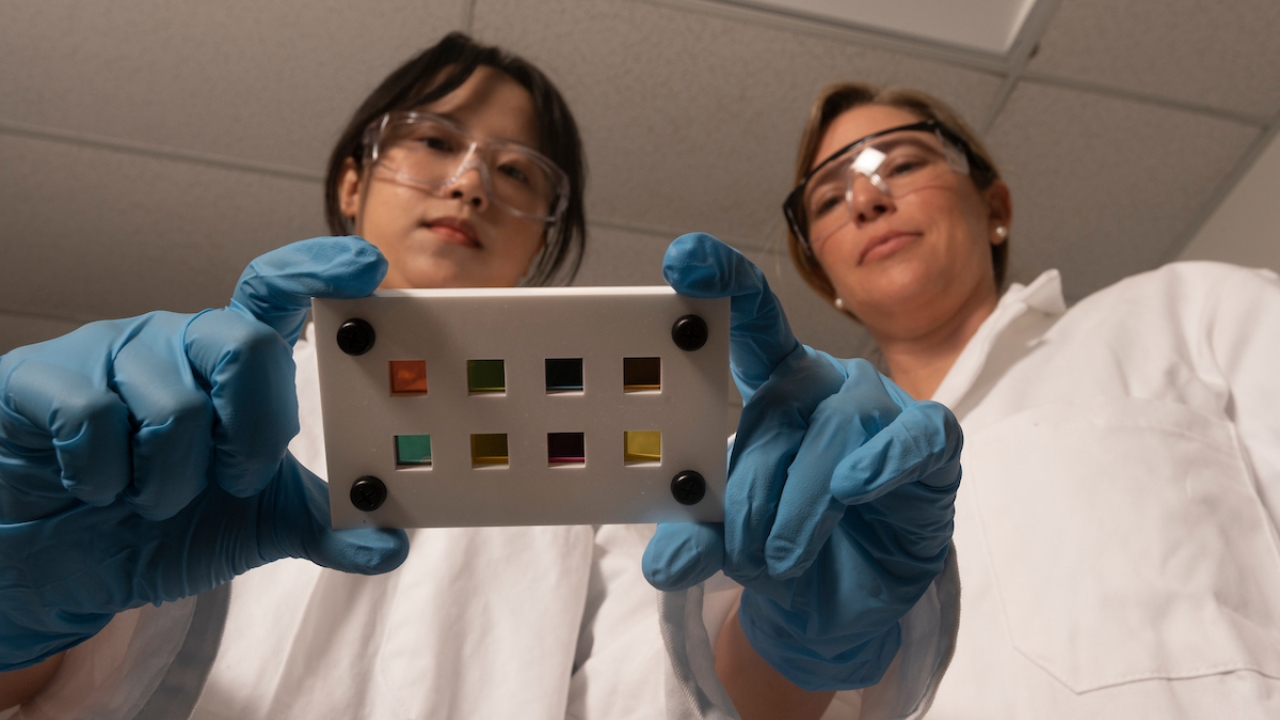
Sowing Seeds of Impact: Marina Leite Focuses on the Long-Term Through Research and a Mindful Approach to Mentorship
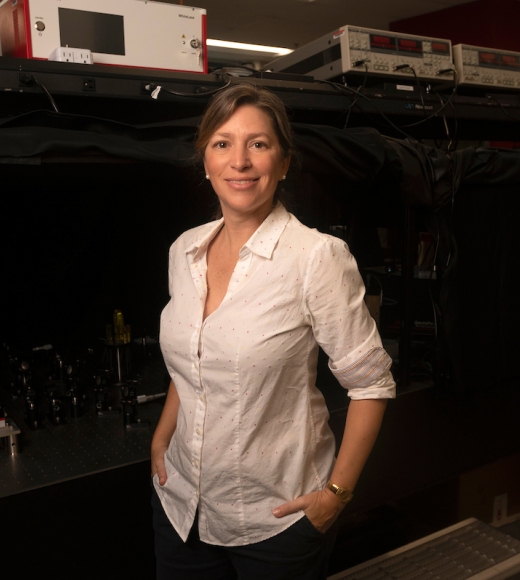
Marina Leite is on her fourth cell phone.
“My first iPhone lasted me six years,” she said, holding up her current model, “and this one has lasted me four.”
A professor in the Department of Materials Science and Engineering at the University of California, Davis, and a Chancellor’s Fellow, Leite is holding out on upgrading her phone because tossing her old one would produce excess waste.
“I'm a person that feels very torn every time I throw something in the trash,” Leite said. “I’m thinking, ‘Can I reuse this? How about recyclability? Is it going to be an energy-intensive process? Will people actually recycle almost all the materials that compose this object after I throw it in a blue trash versus a green one?’”
Leite’s worries are valid.
Regardless of what color bin you toss trash into, about 32% of all garbage in the U.S. gets recycled, according to the Environmental Protection Agency. This inner eco-consciousness is part of what drove Leite, who earned her bachelor’s degree in chemistry and her Ph.D. in physics, to pursue research in materials sciences at UC Davis.
Powering Up Sustainably
In the Leite Lab, a team of graduate and undergraduate students are combining experimental techniques with computational tools to discover new materials and phenomena that could lead to making solar power more efficient, less costly, and more widely available.
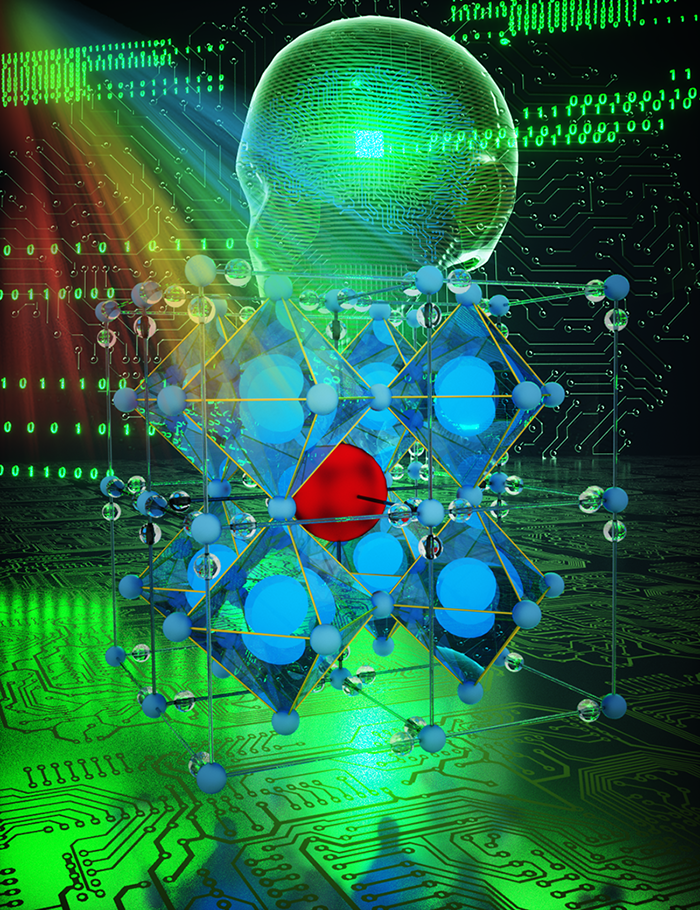
Making solar energy economical is one of the National Academy of Engineering’s 14 Grand Challenges for the 21st century, and Leite’s team is exploring topics ranging from biodegradable materials to reduce electronic waste to alternative materials for photovoltaics.
Some members of the lab are investigating the optical properties of metals, magnesium and metallic alloys at the nanoscale, to better understand their functions and how they might be used in applications ranging from color pixels to catalytic processes, while others are pouring their energy into the realm of photovoltaics, researching materials that can maximize the usage of the sun spectrum.
“When selecting what projects my group should work on, a big part of that drive is investigating functional materials that will enable devices to ultimately contribute to sustainability,” Leite said. “I often ask myself, ‘How can I, as a professor, balancing research, teaching and the daily activities related to my position, still significantly advance the state-of-knowledge of materials research related to climate change mitigation and thereby contribute to the longer term?’”
Her lab’s research on big-picture problems like sustainability has been well-recognized. In the last four years, Leite’s findings have been highlighted on the cover of 14 scientific journals (she has 31 covers in total), and her students have received 15 research-related awards and honors, including two National Science Foundation, or NSF, graduate fellowships.
Inclusive Means Everyone
It isn’t just with lab work that Leite is contributing to the long term though. Outside of her professor duties, Leite devotes much of her time and energy to mentorship and a mission of inclusion in the STEM field, particularly in materials science. She has participated in women in engineering talks, telling high schoolers what materials science is and what types of jobs a materials scientist could do, and inviting them to her lab for tours. This summer marked the second time she participated in the NSF-funded summer program JUAMI, or Joint Undertaking for an African Materials Institute, a two-week-long summer school that unites Ph.D. students from Africa and the U.S. to learn and collaborate. This year, Leite noted excitedly, half of the attendees were women.
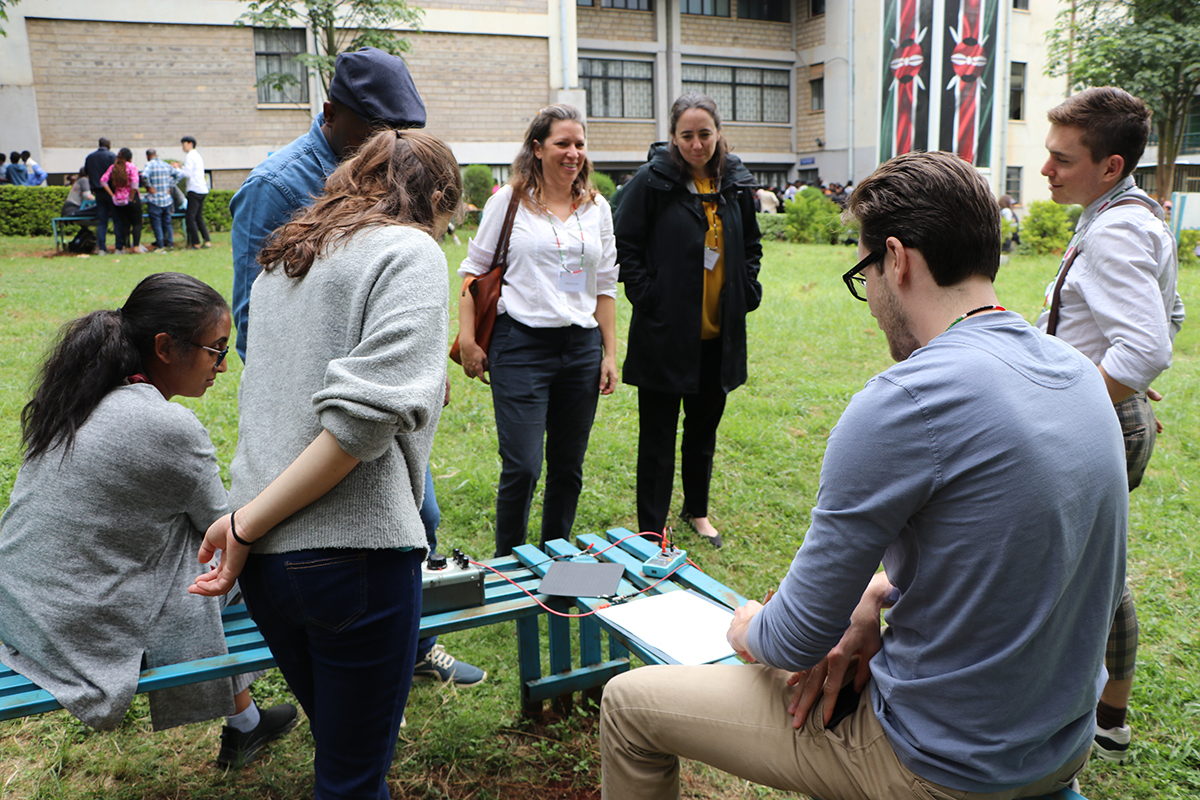
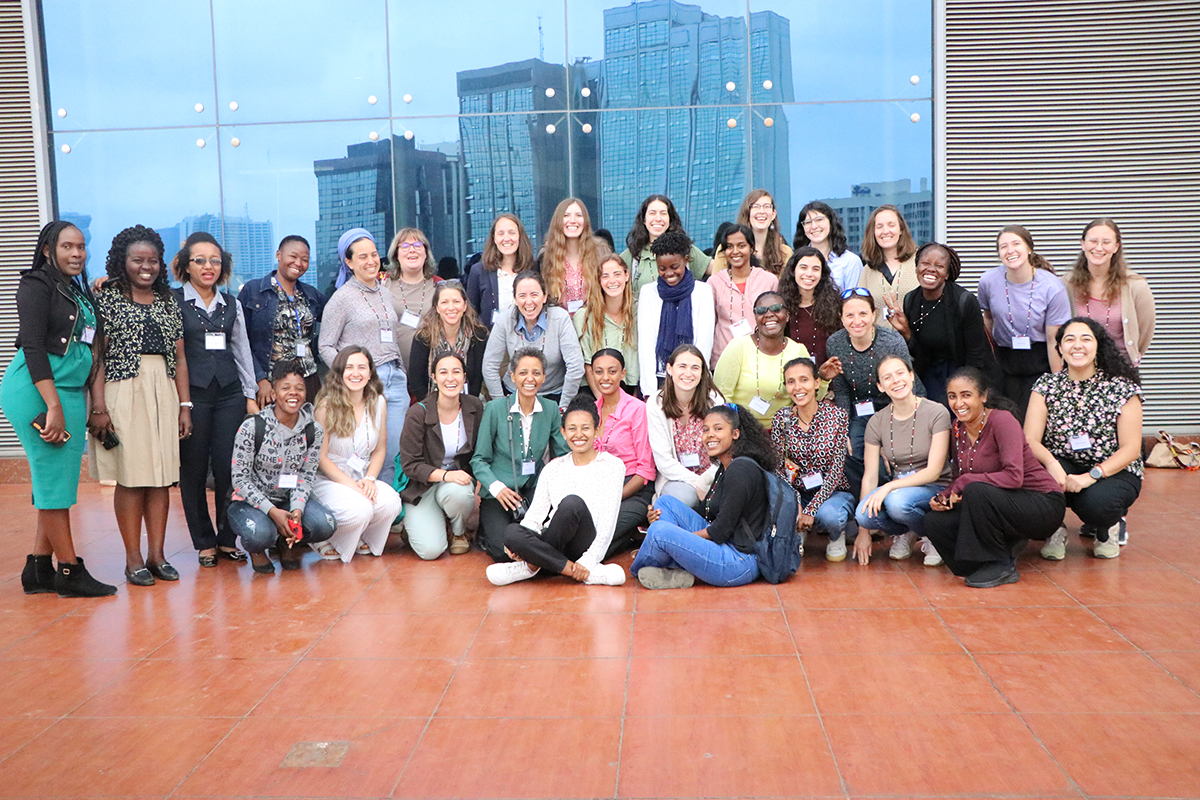
A daughter of professors in STEM fields – her father’s specialty was physics while her mother’s was math (both MIT alumni) – and surrounded by aunts, uncles and friends who earned Ph.Ds., Leite grew up believing that an equal representation of women and minorities in the STEM academia was the norm.
“What a bubble, huh?” Leite said, aware that what was common in her family is not as common outside of it. “I take diversity very seriously. I think it's easy to write about it, but to actually go out of your way to recruit and retain students from groups traditionally underrepresented in STEM, including providing them research opportunities, continuous mentorship, and an environment to excel is a super important component of my work.”
Leite also ensures inclusion and representation in her own lab. More than 50% of the students that Leite has advised since she established her independent scientific career have been from traditionally underrepresented groups in STEM. Currently, four of her Ph.D. students are women.
Cultivating Community
It’s not enough, though, to just get them in the door. Leite deems it her responsibility to create an environment that is supportive and collaborative, and to instill in these young researchers the confidence to try things out, fail, try again, celebrate their success, and grow as scientists in the process.
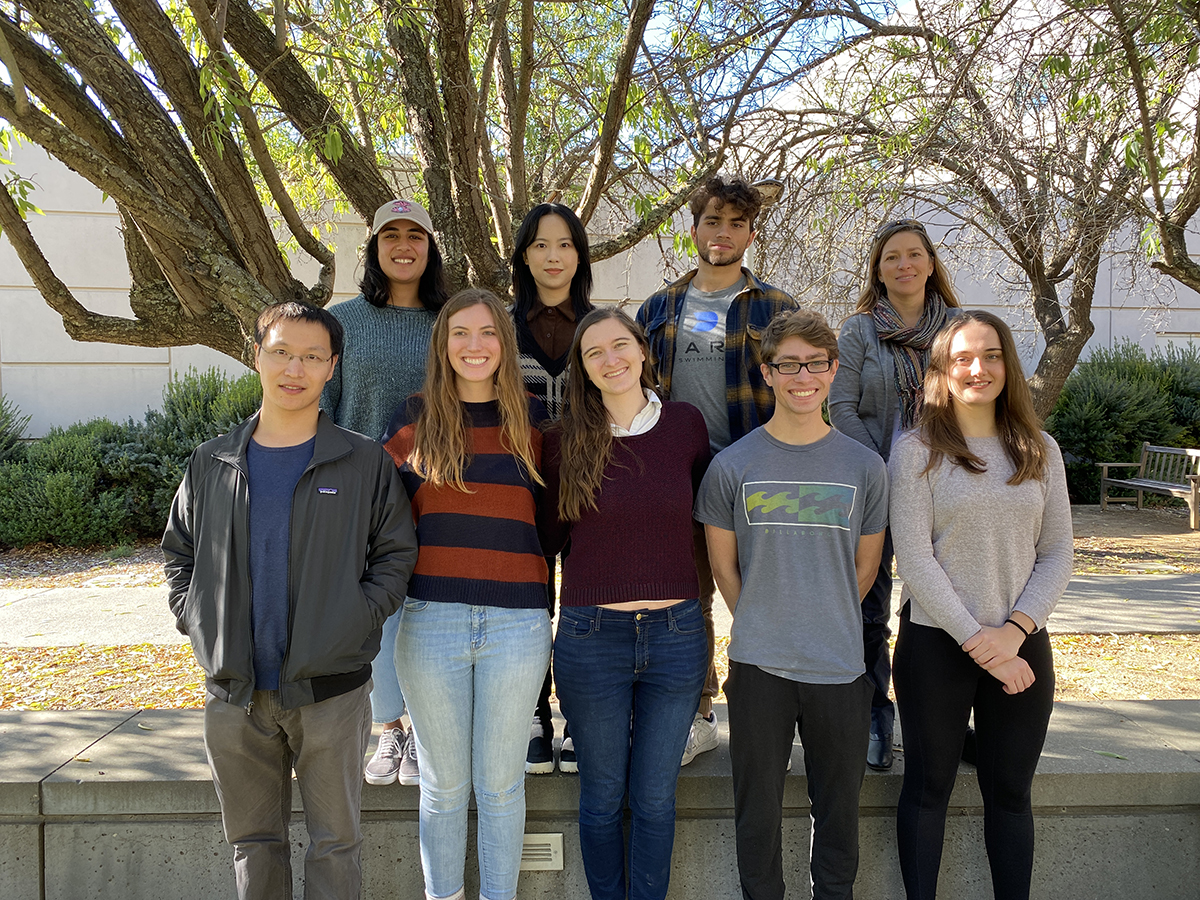
Peifen Lyu, who is in the final year of her Ph.D. studying the optical properties of nanomaterials at Leite’s lab and received the 2023 College of Engineering Excellence in Graduate Student Research Award, said that when she first started working with Leite, she was shy about her research and results. With Leite’s encouragement and the support of her peers, her confidence in her work has grown exponentially.
“One of her rules is every person needs to have at least one question for others presenting. She kind of forced us to listen and share,” Lyu said. “Now, people are so engaged in the presentations, we always have a lot of questions, and we always get a lot of feedback. Through this process, I became much more confident about my results, less nervous when sharing my research, and proud of what I am doing now.”
Mansha Dubey, a third year Ph.D. student researching perovskite solar cells, said that the lab environment that Leite facilitates gives her the freedom to challenge herself because it is so open-minded and judgment-free, relieving some of the stress that can come with pursuing a doctorate.
“I am not afraid or ashamed of failure,” Dubey said. “I feel that my opinions and feedback are valued which makes me feel welcome and, in fact, challenges me to get out of my comfort zone and tackle more difficult ideas. This environment has allowed me to seek the limits of my capabilities.”
All Are Welcome Here
Leite realizes the hours of dedication the students are putting towards their projects can be draining. So, in her mind, the people they share so much of their time and energy with need to complement each other, and the place where they do their research needs to be inclusive, encouraging, friendly and safe. That way, they will continue push themselves and each other to become well-rounded scientists that can remain tackling those big-picture issues like climate change and sustainability, even after they leave her lab.
“Research can be challenging at times,” said Leite. “It’s fun! It’s also intense and consuming, so I think it’s really important to have an environment where everybody feels good, that is welcoming to everyone. My hope is that the students that I work with are enjoying it so much they don’t want to stop.”

